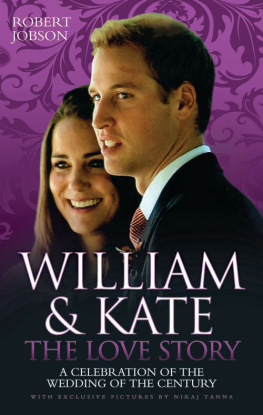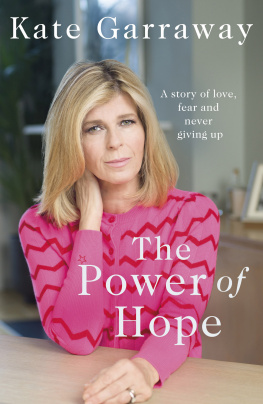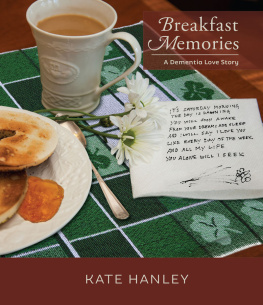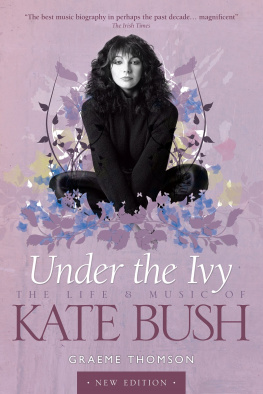
For Tsedup
who is my inspiration.
That he may be understood.
And for the people of Machu
who gave me so much.
This book is my way of giving back to them.
***


NB. All dates of birth are approximate since the nomads use a different method of time measurement and do not recognise birthdays see p. 274 Chapter 16.
With thanks to those who understand. To all of our friends, especially Jemima and Lamakyab who know more than anyone what this book means. To Ells, Chlo and Kats who were part of the adventure. To Tsedup's family for giving me a home. To my family for their love: especially to Dad for his unfaltering support, to Mum for her help with editing and for believing in me, and to Phil.
But mostly to Tsedup, without whom there would be no book. There would be no Gonbochab. And without whom I would be lost.
For the background on Shamanism and Buddhism, I am grateful to Alexandra David-Neel, With Mystics and Magicians in Tibet, Penguin, London, 1931; and Keith Dowman, The Sacred Life of Tibet, Thorsons, London, 1997.

We met in the shadow of the Himalayas. In a place where monkeys ran on tin roofs and flying squirrels leapt like bats from pine to shivering pine. Where the roar of monks' horns from the monastery blasted the summer sky, and glaciers shone like cut diamonds.
It is so difficult to talk about love, how it all started, but the drama of ours changed my life.
It was in McLeod Ganj, an Indian hill station, at a roof-top party, full of Tibetans and drunk Punjabis, that I saw a man dance, his eyes closed, long hair swirling in a dervish-spin. Around him the chaos reeled, and he must have seen me looking at him, for he came and sat with me and we looked out at the black night. Then he began to tell me, very carefully, about the great, golden eagles in the mountains of his homeland. He spoke of nature with such integrity, as if he was part of the earth, not just on it.
I had no idea how he felt about me so I tailed him. He used to sit on the dusty street opposite the Dalai Lama's monastery, strumming a guitar and selling bread he'd made. I diverted my walks so that I would pass him each day, or I would see him stroll down the bustling street from my balcony. Once he brought me an eagle feather.
Then one morning, in a voice so serious, he told me he'd dreamt of me. Later, in his tiny house, our life began. We took a room in a valley of corncobs, with a cow downstairs who mooed at night. We spent days walking in the forest and swam naked in a pool of melt-water. When we stopped on a rock at night he sang to me. 'From now on there is no yours and mine,' he told me. We would share everything.
Right from the beginning we were inseparable. We spent hours holed up in our small house talking. He already had a good grasp of English as he had been studying at a school before we met and had quite a few English friends. Despite our different cultures, we discovered we were uncannily compatible. He coaxed out all that had lain dormant in me: he encouraged me to paint, to play music, to speak from the heart. I knew that he had an energy I did not possess and his unbounded enthusiasm for life became the inspiration for mine. I listened as Tsedup spoke of the relatives he had left behind in Tibet, the tribe, the yaks, the mountains. He missed it all.
He was born by the first bend of the Yellow river, a Tibetan nomad in a yak-hair tent in a nomads' land. At four he rode bareback and shot his father's rifle. At twelve he told his family he wanted to go to school. In the town he watched Kung Fu films and wished he had been born Chinese. At eighteen he escaped to India on foot over the mountains, with some money taken from a box in the tent. He didn't tell his family first they would never have let him go.
I was born in the London suburbs, and had a happy middle-class childhood in a free country. I meandered along the well-worn track from school, to university, to art college. Then, one summer holiday, I went travelling: I felt the need for adventure.
Now here we were in India, across the border from Tsedup's country and four thousand miles from mine. A step down from the Tibetan plateau and a step away from any notion of home. We were in the middle, geographically, spiritually, culturally. Tsedup was in exile; I was just visiting; India was our half-way house.
Meeting him was unexpected, but I had never been so sure of anything in my life. That summer, I came home, dumped college and worked to save money to go back. In the winter we were together again, my parents worrying for my sanity. Tsedup had only planned a short trip to India, a couple of years to learn some English, and then it would be back to the tribe. He hadn't banked on meeting me and he never made it back over the mountains.
The year after we met, we were married in India, in a small registry office with plastic plants and a fat notary who muttered, 'Visa marriage,' under his breath as he stamped our certificate. It resembled a sheet of school loo paper (the kind you use for tracing maps in Geography). It had all the romance of an auction. Afterwards we sat and ate noodles quietly. I hadn't told my parents. Even when they came out to see us for a week, we didn't whisper a word. We didn't feel married, not properly. We just wanted to be together and, besides, I wanted them to get to know Tsedup before I broke it to them that he was their son-in-law. A nomad in a family tree is something to get your head around.
It was hard enough for them to cope with our living conditions. I had spent the whole day cleaning before they arrived, but still my father recoiled when he saw our house. It was beyond him to imagine living in a room that resembled his garage. From the relative comfort of their three-star hotel on the lip of a cliff overlooking the valley, he helped save us from that 'shocking existence' by writing a letter to the British High Commission in Delhi. In a month we would be interviewed for Tsedup's British visa, which would enable him to live in England with me. My father was happy to use his status at the bank to offer his support, and I was touched. As well as everything else Tsedup brought to my life, he taught me that there was no limit to my parents' love for me.
After waiting for three months we were summoned to Delhi. We had no idea what to expect. As an exile, Tsedup had had no papers and we had bribed an official to get him an Indian passport. The next morning we dressed in new clothes. At the crowded High Commission, Tsedup was called in first. I passed him afterwards in the corridor, sitting in an armchair smiling encouragingly at me. When I pushed open the door I was pleased to see the Englishwoman sitting behind the desk. At least we could relate to each other.
She introduced herself. 'Right,' she said, eyeing me coldly through mascara fronds, 'I see eight couples a day, every day. All of them say they're in love. Most of them are lying. If you lie to me once, it will be the last thing you do in this office.' Then she proceeded to interrogate me, rifling through our love letters and photographs, making me recite his family tree, all seven of his brothers' and sisters' names, in order. At the end, I was ashamed of my country. I understood that she had a job to do, but she did it with such cruel calculation that I could have slapped her. I had been living with a man for whom trust and honesty were sacred: nomads don't lie. But she wasn't to know that.
Next page















